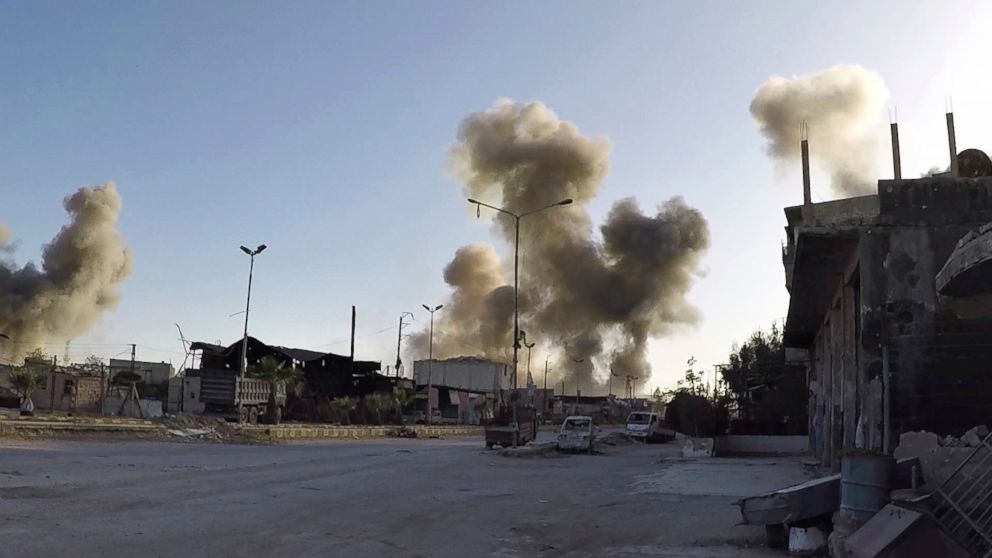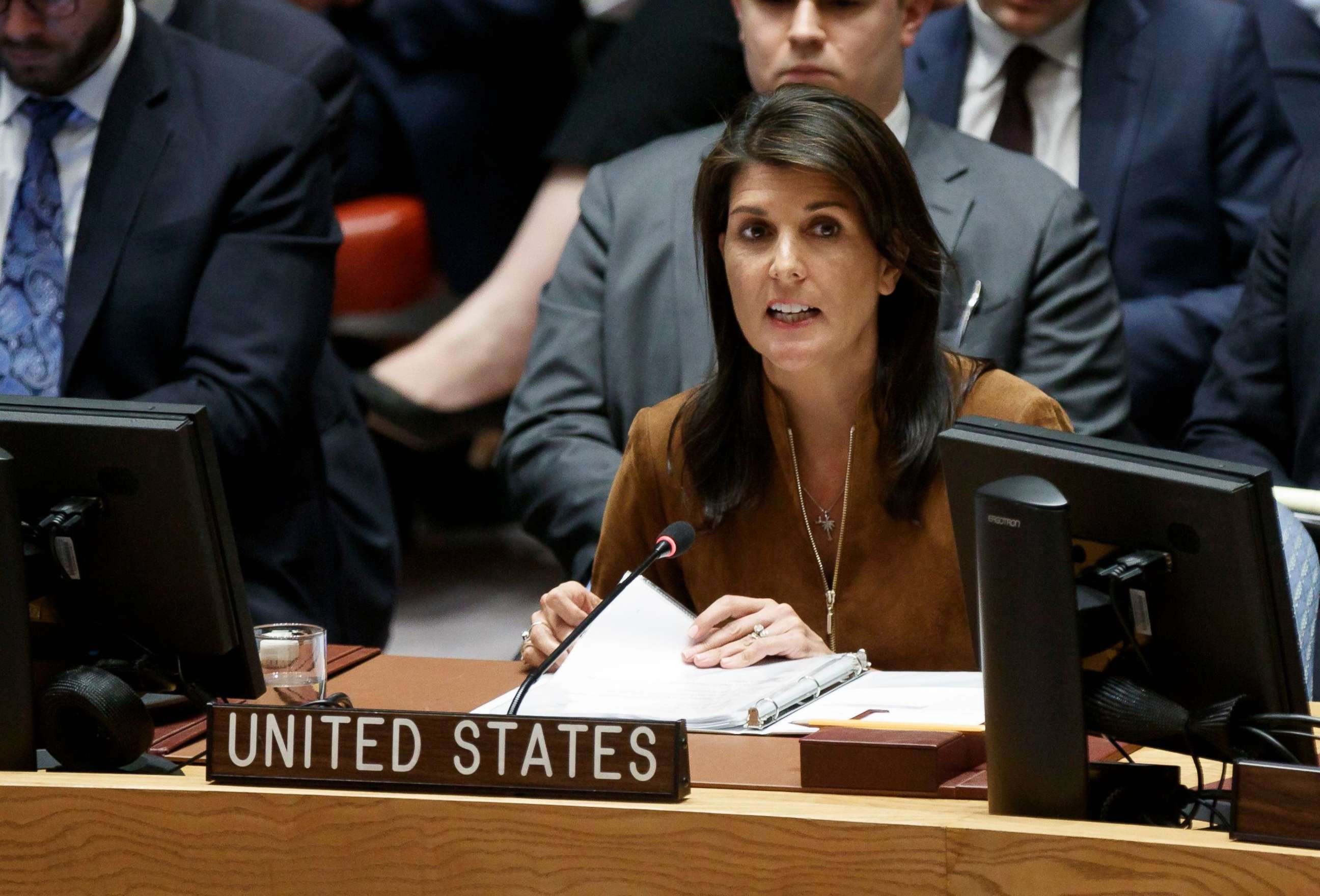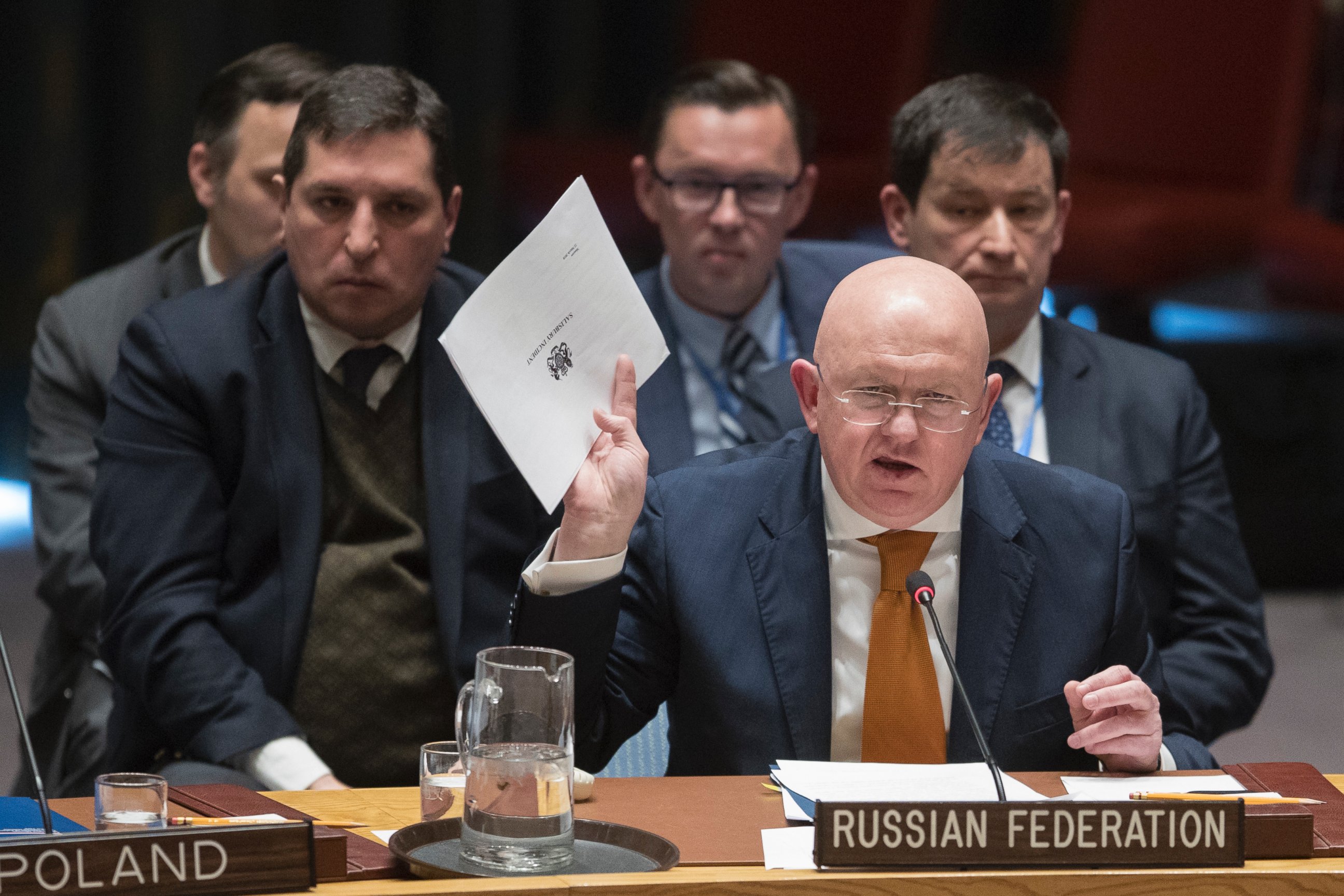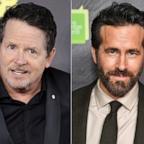Options for US military strike on Syria run the gamut, official says
Chemical warfare inspectors have requested access to the attack site in Syria.
Options for U.S. retaliation against the Syrian government over an alleged chemical attack on a rebel-held neighborhood near Damascus on Saturday run the gamut from light to heavy impact, according to a U.S. official.
President Donald Trump, France's President Emmanuel Macron and U.K. Prime Minister Theresa May held phone conversations Tuesday discussing how the West should act in order to reinforce an international prohibition against chemical warfare.
Macron on Tuesday evening said he wants "a strong and joint response" to the attack, saying that France would decide in the coming days alongside the U.S. and Britain.
According to the U.S. official, one option being considered is striking at the Assad regime’s command and control headquarters for the Syrian military. Another option is striking at areas where the Assad regime houses its chemical weapons.
Meanwhile, leading officials from the Organisation for the Prohibition of Chemical Weapons (OPCW) have requested access to the site of an alleged chemical weapons attack that took place on a Syrian rebel-held neighborhood on Saturday.
The request from the OPCW Technical Secretariat to the Syrian government was announced just as Russia was telling the U.N. Security Council it would put two draft resolutions on Syria to a vote on Tuesday, after rejecting a similar proposal from the U.S. following an angry debate at the council Monday.
Trump has promised a "forceful" response to the alleged attack. The president discussed possible military action that could be taken during a meeting with military leaders on Monday.
Options include limited military strikes, such as the Tomahawk missiles launched from a U.S. Navy destroyer in the Mediterranean targeting a Syrian airstrip almost exactly a year ago after an alleged chemical attack on Khan Sheikhoun in Idlib that killed more than 100 people.
“We have a lot of options, militarily,” the president said after the meeting. “And we’ll be letting you know pretty soon -- probably after the fact.”
Western leaders are mulling possible responses, including Macron and May.

When asked by reporters after the meeting whether Russian President Vladimir Putin, who supports Syrian President Bashar al-Assad, bore responsibility for the attack, Trump said, "Yeah, he may, and if he does, it's going to be very tough. Everybody is going to pay a price."
Trump's third national security adviser, John Bolton, was in the room during the meetings on his first day in office.
It's believed that any U.S. military response is unlikely to include significant numbers of ground forces. Trump signaled last month that he wanted a complete withdrawal of U.S. forces in Syria, taking observers by surprise.
Russian Foreign Minister Sergey Lavrov Monday said Moscow will insist on inspectors from the OPCW traveling to the site of the alleged attack in Syria Saturday.
He added that Russia would submit a draft U.N. resolution today calling for a full investigation with the OPCW, saying the Syrian government and Russian forces were ready and available to facilitate an inspection "already today.”
Western representatives at the United Nations issued strong words Monday condemning the suspected attack in Douma, thought to have killed dozens of people while about 500 were treated with symptoms consistent with exposure to nerve agent.
Russia has the "blood of Syrian children" on its hands, U.S. Ambassador to the U.N. Nikki Haley said.

"History will record this as the moment when the Security Council either discharged its duty or demonstrated its utter and complete failure to protect the people of Syria," she said. "Either way, the United States will respond."
But the Russian ambassador to the U.N., Vassily Nebenzia, said the chemical attack was staged and warned that any U.S. military response in Syria would have "grave repercussions."
Russian experts had entered Douma Monday and did not find any traces of chemical substances used against civilians, Nebenzia said.
And Syrian envoy Bashar Jaafari said Syria had no chemical weapons stockpiles.

"We condemn their use, at any time and under any circumstances," he said.
There have been 10 chemical attacks recorded by activists and doctors in Syria this year, including the alleged incident in Douma Saturday, according to the Syrian American Medical Society.
ABC News' Patrick Reevell contributed to this report from Moscow, while Luis Martinez contributed from Washington, D.C.




